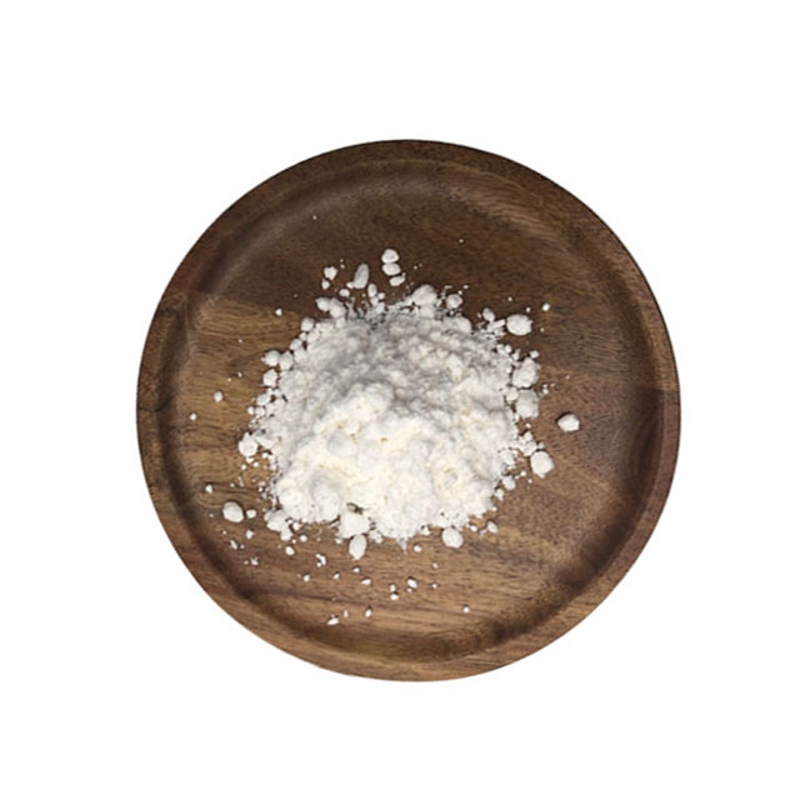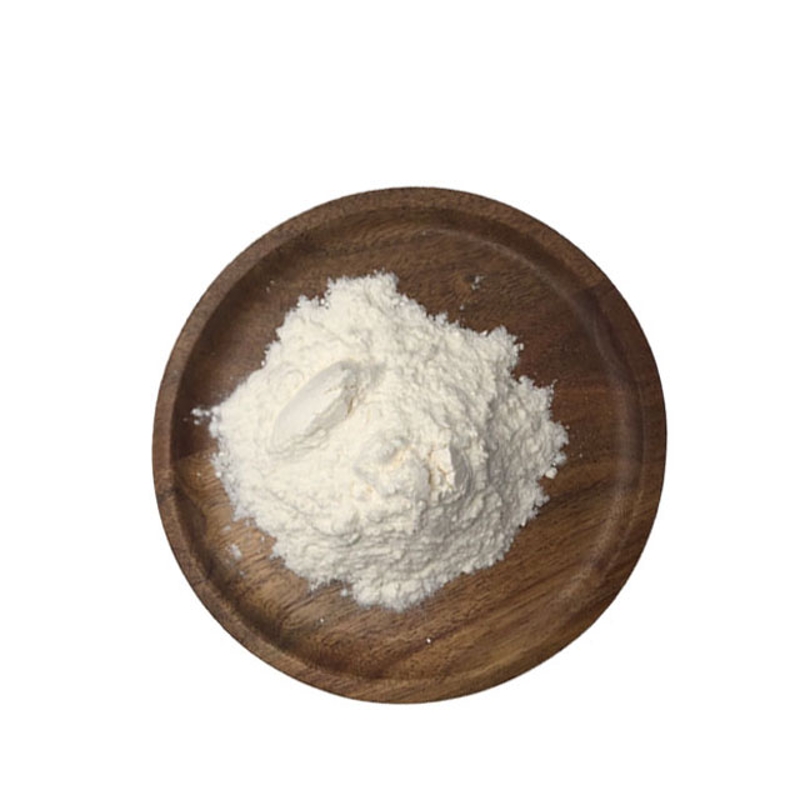-
Categories
-
Pharmaceutical Intermediates
-
Active Pharmaceutical Ingredients
-
Food Additives
- Industrial Coatings
- Agrochemicals
- Dyes and Pigments
- Surfactant
- Flavors and Fragrances
- Chemical Reagents
- Catalyst and Auxiliary
- Natural Products
- Inorganic Chemistry
-
Organic Chemistry
-
Biochemical Engineering
- Analytical Chemistry
- Cosmetic Ingredient
-
Pharmaceutical Intermediates
Promotion
ECHEMI Mall
Wholesale
Weekly Price
Exhibition
News
-
Trade Service
Immune checkpoint blocking offers new hope for the treatment of multiple cancers, however, T-cell-specific checkpoint inhibitors are not effective in all cancer patientsIn a paper published May 18 in Nature Cancer, Chinese scientist Professor Chen Youhai and his collaborators revealed amyelin cell checkpoint, c-Rel, that could be used to develop cancer immunotherapyc-Rel is a transcription factor that has been shown to regulate myelin cell pro-inflammatory polarization and to regulate anti-tumor immune responseSource: Nature Cancerthe development of immunotherapy has dramatically changed people's understanding of cancer and treatmentAmong them, T-cell checkpoint inhibitors such as PD-1/PD-L1 antibodies play an anti-cancer role by waking depletion (dysfunctional) T-cells, which has significant efficacy in the treatment of a variety of cancersHowever, many patients, especially those with little or no tumor-soaked T lymphocytes, do not benefit from this treatmentin fact, in addition to lymphocytes, myelin cells also play an important role in regulating anti-cancer immunityThe presence of myelin cell checkpoints that can be targeted for cancer treatment is a subject that many teams are studyingin this new study,Professor Chen's team demonstrated that the transcription factor c-Rel in immune-suppressive myelin cells inhibits tumor progression and promotes the anti-tumor response of T-cell checkpoints to block the adhesionThis may represent a new immunotherapy strategyc-Rel regulates the suppression of myelin cells against tumor immune response (Source: Nature Cancer)Myelin cells, including circulating and tissue-resident granulocytes, monocytes, macrophages, and dendritic cells, are unique features of expression CD11b and have great transcriptional plasticity In tumors, myelin cells are usually much richer than lymphocytes, and myelin cells have increased considerably in the bone marrow and circulatory systems of the tumor host Because of its strong ability to inhibit T-cell activation, circulating myelin cells in the lotus host are called inhibitive cells of bone marrow origin (myeloid-derived suppressor cells, MDSCs) c-Rel is a member of the NF-B family, expressed mainly in lymphocytes and myelin cells Professor Chen Youhai has been studying c-Rel in the laboratory for nearly 20 years In this new study, they the first to confirm that c-Rel plays a key role in regulating the anti-tumor response of MDSCs studies have found that c-Rel can control the polarization of myelin cells in tumors, and that specifically inhibited c-Rel can significantly inhibit tumor growth and interact with T-cell immunocheckpoint inhibitors These results show the importance of immunosuppressive myelin cells as a key regulatory factor in tumor microenvironment specifically, the study found that the growth of melanoma and lymphoma tumors was significantly inhibited in c-Rel-defected mice (80 percent tumor size and weight reduction in mice with c-Rel defects compared to the control group) The absence of c-Rel in Gr1-marrow cells is associated with tumor growth inhibition and increased in the ifN-N-S-TNF-Alpha-CD8-T cell in the tumor In addition, the removal of c-Rel in mice with a lottumor was associated with a decrease in CD11b-Gr1-and-monocytocytes in blood and tumors, but CD11b-F4/80-Gr1-macrophages were not affected These results show that c-Rel regulates MDSCs in mice with tumors more importantly, the researchers found that c-Rel deficiency induces inflammatory polarization of MDSCs, characterized by increased glycolysis and reduced mitochondrial breathing, which are reminiscent of pro-inflammatory macrophages Reexpressing c-Rel -/-
MDSCs greatly promotes tumor growth and reverses changes in these immune cells RNA sequencing of MDSCs from wild and Rel -/
tumor sources, the study also found that the absence of c-Rel induced gene expression of molecules encoded in inflammation-related processes, including Ciita of the encoding of the main tissue-compatible complex transcription lactation factor CIITA, the Cd40 of the coding T-cell-collecting promo cxCL10, and the coding cell factor-1 2IL In addition, the researchers observed a decline in expression of Arg1 , Nos2 , and other genes that encode immunosuppressive factors Based on these findings, c-Rel inhibitors block tumor growth, MDSC development, and enhance the efficacy of anti-PD-1 therapy (Source: Nature Cancer) scientists further developed a new c-Rel inhibitor R96A and tested its effect on tumor growth in the body The results showed that in wild mice, R96A effectively reduced tumor growth more importantly, R96A also blocks mDSCs from immunosuppressive effects on T cells Because T-cell checkpoint inhibitors inhibit tumor growth by preventing T-cell depletion through a mechanism different from c-Rel inhibitors, the researchers tested a combination of myelin cell checkpoint inhibitors R96A and T-cell checkpoint inhibitors PD-1 antibody The results showed that the combined effect of "R96A-PD-1 antibody" on tumor growth was stronger than that of either of the two therapies alone C-Rel inhibitors block human MDSCs (Source: Nature Cancer) use human cells, and the team also confirmed that their c-Rel inhibitors block edgy MDSCs in vitro, suggesting that such therapies may be effective in human cancer patients "C-Rel is generally considered to be a promoter of immune response, not an inhibitor, " said Professor Chen Youhai, of the That's why this finding is surprising We came to two important conclusions: first, conceptually, we found a new way of cancer development, which was previously unknown, and second, we demonstrated that new drug inhibitors targeted in this path can play the same role even if they are not better than the first generation of checkpoint blockers concludethat that this study is the first to demonstrate that c-Rel is a myelin cell checkpoint that can be targeted for cancer treatment in human cell and mouse models, inhibiting c-Rel molecules in myelin cells can block the production of immunosuppressive cells and significantly reduce tumors Professor Chen said c-Rel represents a new type of checkpoint that is expected to further advance the field of immunotherapy Next they will evaluate the safety of c-Rel inhibitors in preparation for clinical trials Expert Review Shanghai Jiaotong University
Special Professor Li Bin tumor immunotherapy refers to the clinical treatment through clinical treatment to change the tumor tissue immune microenvironment, activate the body's anti-tumor immune response, so as to achieve the complete disappearance of the patient's tumor or can long-term tumor survival of clinical therapies Immune checkpoint refers to the drug target and its associated signal path nodes that can determine whether immune cells can effectively remove tumor cells, including the surface receptors (e.g PD-1, CLTA-4) and their corresponding ligand molecules that are expressed in the negative control of tumor immune response on the surface of the immune cells in the above-mentioned research paper, Professor Chen Youhai, Department of Pathology and Experimental Medicine, University of Pennsylvania School of Medicine, recently found that c-Rel, a key transcription factor for natural immunomyelin cell MDSC present in the microenvironment of tumor tissue, is also an important class of immunocheckpoint molecules The body's anti-tumor immune response can be promoted by c-Rel small molecular inhibitors or conditional knockout of c-Rel in MDSC In addition, the combination of c-Rel inhibitors and PD-1 functional blocking antibodies can more effectively activate the body's anti-tumor immune response this study has proved from the concept that the functional target of target-to-inhibition of myelin immunosuppressive cells can promote the anti-tumor immune response , and provides new ideas, new strategies and new directions to improve the efficacy of clinical tumor immunotherapy by inhibiting natural immunosuppressive cells and combined inhibitory immunosuppressive cell function Professor Chen Youhai's team's prior work also showed that c-Rel is also critical to the differentiation and function of certain tissue-resident induced t-cells (FOXP3-iTreg) such as natural regulatory T cells (FOXP3-nTreg) and the eyes therefore, it can be speculated that c-REL inhibitors, in addition to inhibiting the function of natural immunosuppressive cell MDSC, may also be able to inhibit the immunosuppressive FOXP3-Treg in the microenvironment of tumor tissue to double its function of promoting the body's anti-tumor immune response safety, similar to existing immunocheckpoint inhibitors, c-Rel inhibitors in helping the body to resist tumor immune response, but also may activate the body's autoimmune response, leading to excessive expression of inflammatory factors and autoimmune diseases and other side effects, need to be paid attention to and protected in subsequent clinical trials anti-tumor immunotherapy in the basic, clinical and biomedical experts for decades of unremitting efforts to promote, in recent years, there are many promising breakthroughs, for human advanced tumor patients have brought new hope, especially the current part of immunotherapy can effectively cure certain types of malignant tumor patients Unfortunately, there are still a large number of patients with malignant tumors who have not yet been able to achieve significant results or be fully cured through immunocheckpoint inhibitor therapy In the future, we need not only from the tumor microenvironment single-cell level, combined with spatial positioning and time dynamic change information analysis, more in-depth understanding of tumor cells, immune cells and non-immune cells in the tumor tissue microenvironment interaction and intracellular gene transcription, protein expression and intercellular metabolic dynamic regulation map, but also need to more in-depth understanding and exploration of human and human-induced animal physiology and pathological state immunological characteristics indicators, finally with the help of different immuno-checking therapies and anti-tumor cell proliferation inhibitors, multi-pronged, in the premise of minimizing the damage to the body, improve the efficacy of anti-tumor immunotherapy, and ultimately achieve full recovery of patients or long-term normal survival of tumors related papers: Ting Li et al c-Rel is a myeloid checkpoint for cancer aimmunotherapy Nature Cancer (2020) references: 1 Rel-ating myeloid cells to cancer therapy (source: Nature Cancer) 2 New cancer the ieloid myeloid cells slows pros growth (source: Perelman of The School) author: Man Source: Pharmaceutical Rubik's Cube Pro







